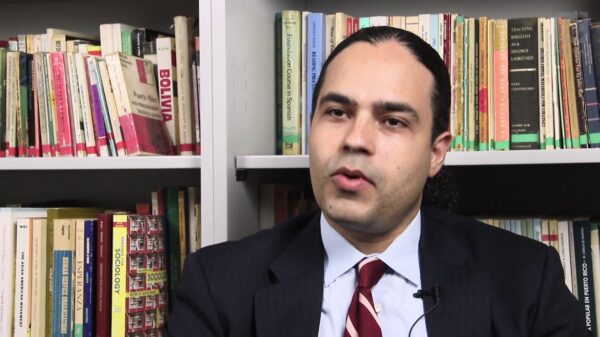Pros Of Immigration In The United States. Discover the numerous benefits of immigration in the United States by Immigrant Magazine. From job creation and economic growth to cultural enrichment and demographic sustainability. Join us as we explore how immigrants shape America’s vibrant tapestry.
Did you know that immigration brings a plethora of benefits to the United States? In this article, we will explore the pros of immigration and how it positively impacts the nation. From driving economic growth and innovation to filling essential jobs and diversifying cultures, immigration plays a crucial role in shaping the vibrant tapestry of America. Join us as we delve into the advantages that come hand in hand with the arrival of immigrants to the United States.
Economic Benefits
Job Creation
Immigration plays a crucial role in job creation in the United States. When immigrants come to the country, they not only fill existing job vacancies but also create new employment opportunities. Immigrants are often entrepreneurial and bring innovative business ideas that lead to the establishment of new businesses. According to research, immigrant-founded companies have contributed significantly to the creation of jobs in various industries, including technology, healthcare, and manufacturing. By starting new businesses and hiring both fellow immigrants and native-born Americans, immigrants contribute to the overall growth of the economy and job market.
Innovation and Entrepreneurship
Immigrants are known for their entrepreneurial spirit and contribute to the United States’ culture of innovation. Many successful businesses and globally recognized companies have been founded by immigrants or their children. These immigrants bring a fresh perspective, diverse experiences, and unique ideas that drive innovation. They are often more willing to take risks, resulting in the creation of new products, services, and industries. The presence of immigrants in the workforce fosters competition and encourages American companies to continuously evolve and remain at the forefront of global markets.
Contributions to Social Security and Taxes
Immigration plays a significant role in sustaining social security and tax systems in the United States. Immigrants, both documented and undocumented, pay taxes that contribute to the funding of various social programs, including social security and healthcare. Despite popular misconceptions, immigrants are net contributors to the economy. According to studies, undocumented immigrants alone contribute billions of dollars in taxes each year. Additionally, as immigrants become part of the workforce and earn higher incomes, their tax contributions increase, further strengthening the country’s financial resources.
Sustaining Key Industries
Certain sectors of the United States’ economy heavily rely on immigrant labor. The agriculture, hospitality, and construction industries, for instance, face labor shortages that are mitigated by immigrant workers. Without immigrants, these industries would struggle to meet the demand for their services and products. By providing a steady supply of labor, immigrants help sustain key industries, ensure economic stability, and support economic growth. This, in turn, benefits both businesses and consumers by maintaining affordable prices, improving productivity, and preventing disruptions within critical sectors.
Cultural Enrichment
Diverse Perspectives and Ideas
Immigration brings diverse perspectives and ideas that enrich the cultural fabric of the United States. When individuals from different backgrounds come together, they bring with them unique experiences, traditions, and viewpoints. This cultural diversity fosters creativity, promotes critical thinking, and drives social progress. It allows for a broader range of perspectives to be considered, leading to more inclusive and well-rounded decision-making processes in various fields such as arts, sciences, and politics. Embracing these diverse perspectives enhances the overall cultural and intellectual development of society.
Cultural Exchange and Integration
Immigration promotes cultural exchange and integration, leading to a vibrant and dynamic society. Immigrants often share their cultural practices, customs, and traditions, enriching the cultural landscape of their new communities. This intercultural exchange fosters mutual understanding, appreciation, and respect among different groups. By embracing cultural diversity, the United States promotes inclusivity and fosters a sense of belonging and unity within its population. The various festivals, celebrations, and cultural events held by immigrant communities contribute to the social cohesion and overall cultural richness of the nation.
Language Diversity
Immigration contributes to the preservation and diversification of languages in the United States. Immigrants bring with them their native languages, which adds linguistic diversity to the country. This linguistic diversity not only enhances the cultural experience but also has practical benefits. Being multilingual is increasingly valuable in a globalized world, where businesses and organizations seek individuals who can communicate effectively with diverse populations. Being exposed to different languages also promotes cognitive development and helps individuals become more adaptable and open-minded.
Artistic and Culinary Contributions
Immigrants have made significant contributions to the artistic and culinary landscapes of the United States. From literature to music, from painting to dance, immigrants have introduced new forms of artistic expression and enriched American culture. Renowned artists, writers, musicians, and performers from diverse backgrounds have left an indelible mark on the cultural heritage of the country. Similarly, immigrants have brought their culinary traditions, flavors, and techniques, introducing a diverse range of cuisines that have become integral parts of American culinary culture. These contributions create a vibrant and diverse artistic and gastronomic scene, attracting tourists and generating economic growth.
Demographic Growth
Population Growth and Workforce
Immigration helps maintain a healthy population growth rate and ensures a productive workforce in the United States. With an aging native-born population and declining birth rates, immigrants play a crucial role in replenishing the country’s labor force and sustaining economic growth. Through their contributions to various industries and sectors, immigrants bolster productivity, drive innovation, and fill labor gaps that would otherwise hinder economic development. The influx of immigrants ensures a robust and dynamic workforce, capable of meeting the needs of a growing and evolving economy.
Reverse Aging Population
As the United States grapples with the challenges posed by an aging population, immigration offers a solution to reverse this trend. With longer life expectancies and lower birth rates, the native-born population cannot single-handedly support the social systems and programs designed for retirees and the elderly. Immigration provides a constant inflow of younger individuals, who, as they age, will contribute to the labor force and help fund social security and healthcare programs. This demographic balance helps alleviate the strain on public resources and ensures the sustainability of social systems in the long run.
Addressing Labor Market Gaps
Immigration plays a pivotal role in addressing labor market gaps and ensuring a skilled workforce in specific industries. Some sectors, such as nursing, engineering, and technology, often face shortages of highly skilled workers. Immigrants, particularly those with specialized skills and expertise, help bridge these gaps and contribute to the growth and competitiveness of the respective industries. Their knowledge, experience, and qualifications fill critical roles that are essential for economic development. By addressing labor market gaps, immigration contributes to overall productivity and facilitates the expansion of key sectors that drive economic progress.
Support for Social Security and Healthcare
The influx of immigrants positively impacts social security and healthcare systems in the United States. As immigrants enter the workforce and earn income, they contribute to the funding of social security and healthcare programs through payroll taxes. This financial contribution helps support these systems and ensures that they can adequately provide for the growing number of retirees, disabled individuals, and those in need of healthcare services. By expanding the contributor base, immigration enables the sustainability of social security and healthcare systems, ensuring that future generations can also benefit from these essential safety nets.
Education Enhancement
Attracting International Students
Immigration enhances education in the United States by attracting talented international students. American universities and colleges are renowned globally for their academic excellence and research opportunities. By welcoming international students, the country not only fosters a diverse and inclusive learning environment but also benefits from their presence. These students bring fresh perspectives, international networks, and valuable contributions to research and innovation. Additionally, international students contribute financially to the education system, supporting institutions and local communities through their tuition fees and living expenses.
Diversity in Learning
Immigration promotes diversity in learning, which is crucial for a comprehensive and well-rounded education system. By welcoming students, teachers, and scholars from different countries and cultural backgrounds, the United States enriches its educational institutions. The exchange of ideas, experiences, and knowledge among individuals representing diverse cultures and perspectives encourages critical thinking, creativity, and empathy. Exposure to different perspectives helps students develop a broader understanding of global issues, become more tolerant, and fosters a spirit of international cooperation and cultural appreciation.
Research and Academic Excellence
Immigration fuels research and academic excellence in the United States. Many renowned scientists, scholars, and researchers have originated from different parts of the world and have enriched the American academic landscape through their contributions. By attracting and retaining foreign talent, the country enhances its scientific capabilities and strengthens its position as a global leader in various fields. Immigrant researchers often collaborate with native-born scientists, leading to groundbreaking discoveries and advancements that benefit society as a whole. This exchange of knowledge and expertise drives innovation, improves educational quality, and secures the country’s reputation for academic excellence.
Contribution to Science and Technology
Immigration significantly contributes to the fields of science and technology in the United States. Immigrant scientists, engineers, and researchers have played pivotal roles in fundamental scientific breakthroughs and technological advancements. Their expertise and innovative thinking drive progress in areas such as medicine, engineering, information technology, and renewable energy. The influx of talented minds from around the world ensures that the United States remains at the forefront of scientific and technological innovation. This, in turn, leads to economic growth, job creation, and improvements in the quality of life for all Americans.
Inclusive Society
Building Ties with Immigrant Communities
Welcoming immigrants fosters the building of strong ties with immigrant communities, promoting social integration and inclusion. By recognizing and appreciating the cultural heritage and contributions of immigrants, the United States cultivates a sense of belonging for all its residents. Building relationships with immigrant communities helps create a cohesive and harmonious society, where individuals from various backgrounds are valued and respected. It encourages collaboration, promotes solidarity, and fosters a collective responsibility in addressing societal challenges and promoting shared prosperity.
Promoting Tolerance and Acceptance
Immigration promotes tolerance and acceptance, shaping a society that values diversity and respects human rights. By embracing individuals from different cultures, religions, and backgrounds, the United States creates an environment of inclusivity, where everyone is treated with dignity and equality. Exposure to different perspectives helps dispel stereotypes, challenge prejudices, and encourages empathy and understanding. This inclusive mindset encourages open dialogue, facilitates cultural exchange, and fosters a society that celebrates differences, rather than fostering division or discrimination.
Integration and Social Cohesion
Immigration contributes to social cohesion and integration, fostering a united and cohesive society. Immigrants strive to integrate into their new communities, embracing local customs and traditions while maintaining their cultural identity. This mutual exchange of values and practices creates a rich tapestry of diverse cultures that are interwoven, creating a sense of shared heritage and common purpose. Immigrant communities often become integral parts of their host societies, contributing economically, socially, and culturally. This integration fosters a sense of shared destiny, strengthens social bonds, and promotes unity while celebrating the unique contributions of each individual and community.
Supporting Humanitarian Values
By welcoming immigrants, the United States upholds its commitment to humanitarian values and provides protection and assistance to those in need. Many immigrants come to the country escaping political persecution, violence, or dire economic circumstances. Offering refuge and opportunities to these individuals aligns with the nation’s spirit of compassion, empathy, and solidarity. The United States has a proud history of providing a safe haven for those seeking a better life, and this legacy of compassion and generosity is preserved through continued support for immigrant communities. The nation’s commitment to humanitarian values strengthens its global reputation and inspires other countries to follow suit.
Entrepreneurship and Job Creation
Small Business Creation
Immigrants have played a significant role in driving small business creation in the United States. Many immigrants arrive with entrepreneurial aspirations and create their own businesses, contributing to the country’s vibrant small business sector. According to research, immigrants are more likely to start businesses compared to native-born Americans. These small businesses create job opportunities, stimulate local economies, and contribute to overall economic growth. Immigrant entrepreneurs bring their unique skills, cultural insights, and customer preferences, leading to increased innovation, healthy competition, and improved products and services for consumers.
Increasing Innovation
The entrepreneurial spirit of immigrants contributes to increased innovation in the United States. Immigrant-founded companies often bring disruptive ideas, unconventional approaches, and diverse perspectives that challenge the status quo. Their unique experiences and backgrounds lead to the development of innovative products, services, and technologies. By fostering a culture of innovation, immigrants inspire native-born Americans and help drive technological advancements that improve productivity, quality of life, and global competitiveness. The presence of immigrant entrepreneurs fuels creativity, accelerates economic growth, and positions the United States as a hub of innovation-driven industries.
Job Opportunities for Americans
Contrary to popular belief, immigration does not lead to job scarcity for native-born Americans. In fact, immigration creates job opportunities for Americans. Immigrant entrepreneurs often hire American employees to support the growth of their businesses. The additional jobs created by immigrants fill essential roles, provide income and workplace experience for Americans, and contribute to low unemployment rates. Furthermore, the dynamic and competitive nature of the job market, fueled by immigrant workers and entrepreneurs, leads to increased productivity, higher wages, and upward mobility for Americans.
Revitalizing Depopulated Areas
Immigration has the potential to revitalize depopulated areas and rejuvenate local economies. In some regions, declining populations and outmigration have resulted in economic stagnation, decreased public services, and a lack of entrepreneurial initiatives. By attracting immigrants to these areas, vacant job positions can be filled, underutilized resources can be revitalized, and local economies can experience a resurgence. Immigrants inject new life into communities, creating demand for goods and services, supporting local businesses, and contributing to the growth and vitality of these regions. Through this revitalization, the United States can ensure balanced development across its diverse geographic landscape.
Global Influence
Diplomatic and Cultural Relations
Immigration enhances diplomatic and cultural relations between the United States and other countries. By welcoming immigrants, the country fosters goodwill and strengthens ties with the nations from which they originate. Immigrants often maintain connections with their home countries, becoming ambassadors of goodwill and cultural exchange. This people-to-people diplomacy fosters mutual understanding, paves the way for fruitful partnerships, and improves diplomatic relations beyond formal government channels. The United States’ commitment to openness and inclusivity on an individual level helps build a positive international image and enhances its soft power influence in the global arena.
Soft Power and International Reputation
Immigration contributes to the United States’ soft power and international reputation. The country’s tradition of providing a pathway to opportunity and freedom has long attracted individuals seeking refuge, education, and economic prosperity. This reputation serves as a magnet for talented individuals from around the world, who are drawn to the United States’ commitment to human rights, individual freedoms, and democratic values. The ability to attract and retain talented individuals bolsters the country’s influence in various spheres, including academia, arts, sciences, and business. The United States’ reputation as a land of opportunity strengthens its international standing and amplifies its persuasive capabilities.
Promoting Democracy and Human Rights
The United States has a long-standing tradition of promoting democracy and human rights, and immigration plays a vital role in advancing these values globally. Immigrants often come from countries experiencing political turmoil, oppressive regimes, or violation of human rights. By providing a safe haven to these individuals, the United States demonstrates its commitment to democratic principles, equality, and justice. Immigrants gain firsthand experience of democratic institutions and human rights protections, which they can bring back to their home countries, contributing to democratic movements and advocating for change. Immigration serves as a powerful tool in the global fight for democracy and the protection of human rights.
International Cooperation and Development
Immigration enhances international cooperation and development by fostering global networks and partnerships. When immigrants come to the United States, they bring with them their experiences, skills, and knowledge gained in their home countries. Through their connections and engagement with both their home communities and their new American communities, they become bridges for international collaboration. Immigrants often establish professional and personal networks that facilitate information sharing, trade, investments, and cultural exchange. These networks contribute to global development by encouraging mutual understanding, economic integration, and collaborative efforts to address global challenges such as climate change, poverty, and public health crises.
Filling Skills and Labor Gaps
Meeting Demand for High-Skilled Workers
Immigration is instrumental in meeting the demand for high-skilled workers in the United States. Certain sectors, such as technology, healthcare, and engineering, require highly specialized skills and expertise. Immigrants, particularly those who have pursued advanced education or possess unique qualifications, fill these critical roles. They bring knowledge, experience, and innovation that contributes to advancements in these sectors and bolsters the United States’ competitiveness on a global scale. By attracting and retaining high-skilled immigrants, the country ensures that it can meet the demands of a rapidly evolving and technology-driven economy.
Addressing Shortages in Specific Industries
Immigration addresses shortages of skilled workers in specific industries, ensuring their continued growth and success. As technology advances and industries transform, new skill sets become valuable. However, these skills may not always be readily available within the domestic labor pool. Immigrants, with their diverse backgrounds and experiences, often possess the skills that are in high demand. By filling these shortages, immigrants contribute to the smooth functioning of various industries and prevent disruptions that could hinder economic growth. For example, immigrant healthcare professionals address shortages in the healthcare sector, ensuring the availability of quality care for all Americans.
Labor Flexibility and Reduced Costs
Immigration provides labor flexibility to the United States, allowing businesses to adapt to changing market conditions and reduce costs. Immigrant workers often possess a diverse range of skills and are willing to work in industries or occupations that face labor shortages. This flexibility enables businesses to remain competitive and responsive to market demands. Additionally, immigrant workers are sometimes willing to accept job opportunities with lower wages, which can help mitigate labor costs for businesses. By providing a flexible labor force, immigration supports economic growth, job creation, and helps maintain a thriving business environment.
Innovation and Technological Advancements
Immigrants contribute to innovation and technological advancements in the United States. Many immigrants come from countries with thriving research and development sectors or have been exposed to cutting-edge technologies. By bringing their knowledge and expertise, they stimulate innovation and contribute to advancements in various industries. Immigrant professionals often possess specialized skills related to emerging technologies, such as artificial intelligence, biotechnology, and renewable energy. Their contributions drive economic growth, foster creativity, and position the United States as a leader in technological innovation on a global scale.
Contributions to Social Systems
Youthful Workforce
Immigration contributes to a youthful workforce in the United States, which is essential for the sustainability of social systems. The native-born population of the country is aging, and declining birth rates pose challenges to the funding of social security and healthcare programs designed for retirees. Immigrants, especially those of working age, bring vitality and replenish the labor force. As they contribute to social security and healthcare through taxes, their presence supports the financial viability of these programs. The influx of a youthful workforce through immigration ensures that future generations can rely on social systems and enjoy a dignified retirement.
Social Security and Medicare Funding
Immigrants, both documented and undocumented, contribute to the funding of social security and healthcare programs, such as Medicare. As immigrants enter the workforce, they pay payroll taxes that help finance these programs, even if they may not be eligible to receive benefits immediately. According to studies, undocumented immigrants alone contribute billions of dollars annually in taxes that support these programs. This financial contribution strengthens the structure and sustainability of social security and healthcare systems, benefiting not only immigrants but also the broader population that relies on these safety nets.
Support for Healthcare Systems
Immigration plays a crucial role in supporting healthcare systems in the United States. Immigrant healthcare professionals, such as doctors, nurses, and caregivers, fill vital roles within the healthcare sector, ensuring access to quality healthcare for all Americans. Immigrants help address shortages of healthcare professionals, particularly in underserved areas. Their contributions ensure that healthcare facilities can provide essential services and meet the healthcare needs of the population. Additionally, immigrant healthcare workers often bring diverse cultural perspectives, enabling culturally sensitive care that serves a diverse patient population.
Enhancing Pension Programs
Immigration enhances pension programs in the United States, supporting the financial security of retirees. As the country’s native-born population ages, the sustainability of pension programs becomes a concern. Immigrants, through their contributions to social security and retirement savings, help bolster these programs and ensure their longevity. By actively participating in the workforce and paying taxes, immigrants contribute to pension funds, allowing them to continue supporting retirees. The presence of a diverse and productive workforce, including immigrants, provides the necessary resources for pension programs to deliver financial security to the retired population.
Nation of Immigrants Legacy
Historical Tradition and Identity
The United States has a rich historical tradition and identity as a nation of immigrants. Since its founding, the country has welcomed individuals from different corners of the world who sought the promise of freedom, opportunity, and a better life. The diverse mix of cultures, ethnicities, and backgrounds that immigrants bring has shaped the unique and inclusive American identity. This heritage is cherished and celebrated, serving as a reminder of the values that the nation holds dear. Embracing this legacy reaffirms the United States’ commitment to openness, diversity, and the principles upon which the country was built.
Cultural Heritage and Diversity
Immigration has played a significant role in shaping and preserving the cultural heritage and diversity of the United States. Each immigrant wave has introduced new traditions, languages, and customs that have become integral parts of American culture. From food to music, from art to literature, the contributions of immigrants have enriched the nation’s cultural tapestry. The fusion of various cultural influences has given birth to unique art forms, musical genres, and culinary traditions that are now synonymous with American culture. The preservation and celebration of this diverse heritage strengthen social bonds and promote a collective appreciation of the country’s identity.
Symbol of Freedom and Equality
The United States is widely regarded as a symbol of freedom and equality across the globe, and immigrants embody these ideals. By welcoming immigrants, the nation demonstrates its commitment to providing equal opportunities and a fair chance at success. The American Dream, which has inspired countless immigrants, represents the belief that hard work and determination can lead to prosperity and personal fulfillment. As immigrants embrace this ideal and contribute to the social and economic fabric of the country, they become living embodiments of the American Dream. This symbolism reinforces the values of freedom, equality, and equal opportunity that the United States holds dear.
Resilience and Contributions to Nation Building
Throughout history, immigrants to the United States have demonstrated resilience and made significant contributions to nation-building. Many immigrants arrive with limited resources or face tremendous challenges in adapting to a new country, yet they persevere and contribute to the growth and development of the country. Immigrants have played key roles in expanding infrastructure, establishing businesses, developing new technologies, and enriching cultural life. Their determination, hard work, and grit have shaped the United States into the prosperous and diverse nation it is today. The stories of immigrant success serve as inspirations for future generations and highlight the power of perseverance and the opportunities available in the United States.
In conclusion, immigration brings numerous benefits to the United States across various aspects of society and the economy. The economic benefits include job creation, innovation, contributions to social security, and sustaining key industries. Cultural enrichment is fostered through diverse perspectives, cultural exchange, language diversity, and artistic and culinary contributions. Demographic growth is supported through population growth, addressing aging populations, filling labor market gaps, and supporting social security and healthcare. Education is enhanced by attracting international students, diversity in learning, research and academic excellence, and scientific contributions. Inclusive society benefits from building ties with immigrant communities, promoting tolerance and acceptance, integration and social cohesion, and supporting humanitarian values. Entrepreneurship and job creation are fueled by small business creation, increased innovation, job opportunities for Americans, and revitalizing depopulated areas. Global influence is strengthened through diplomatic and cultural relations, soft power and international reputation, promoting democracy and human rights, and international cooperation and development. Immigration fills skills and labor gaps through meeting demand for high-skilled workers, addressing shortages in specific industries, providing labor flexibility, and driving innovation and technological advancements. Contributions to social systems include a youthful workforce, funding social security and healthcare, supporting healthcare systems, and enhancing pension programs. Finally, immigration upholds the nation’s legacy as a nation of immigrants, preserving historical tradition and identity, promoting cultural heritage and diversity, symbolizing freedom and equality, and embodying resilience and contributions to nation-building. The comprehensive advantages of immigration illustrate the indispensable role immigrants play in shaping the United States into a prosperous, diverse, and inclusive society.








